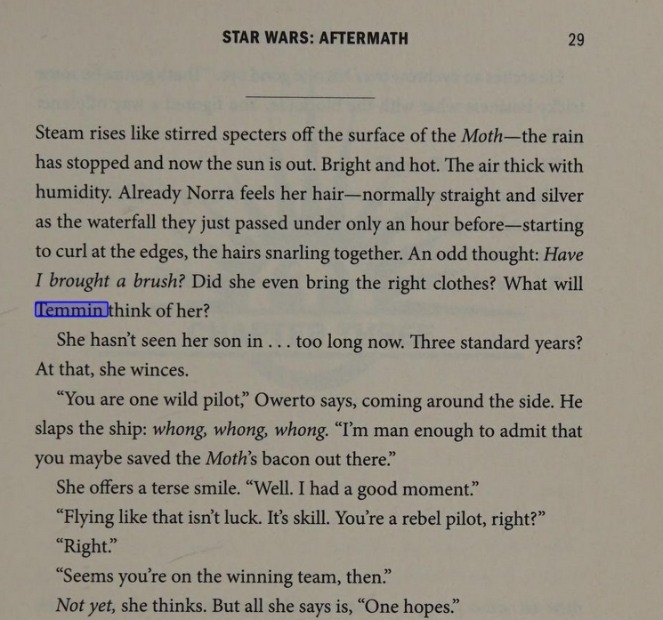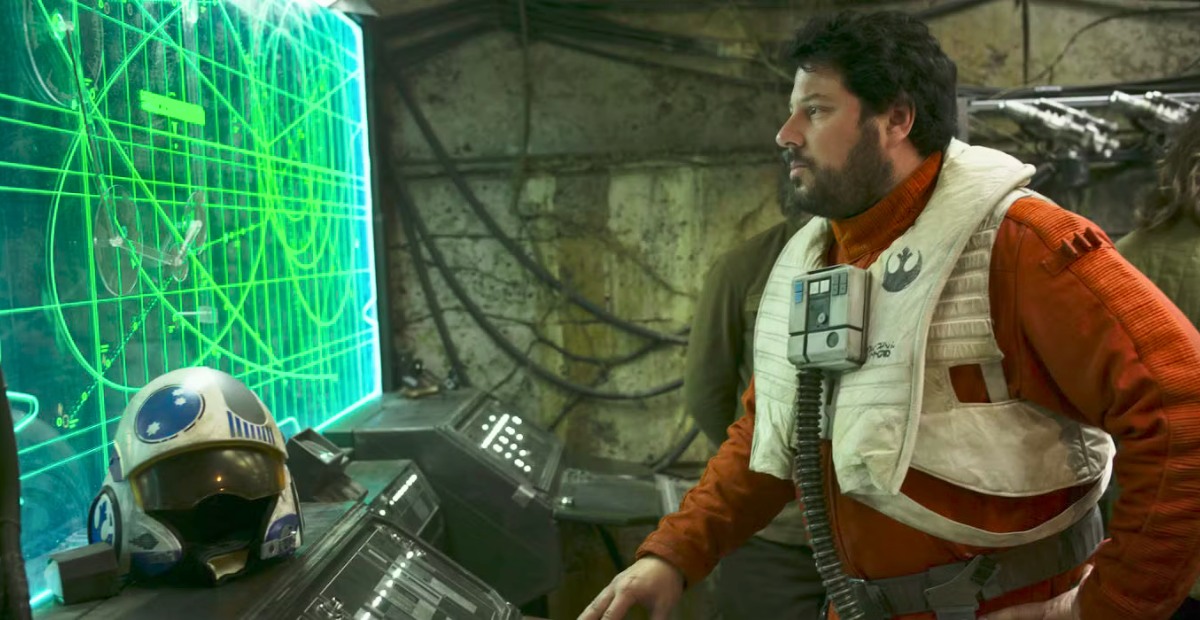This has always bothered me. I know The Rise of Skywalker had bigger issues, but there’s one moment that keeps coming back every time I think about how the sequels handled legacy characters. It’s what they did—or didn’t do—with Temmin “Snap” Wexley.
Most people just saw another Resistance pilot get blown up. But if you’ve followed his story from the beginning, that short scene says a lot about how the movie treated everything built up in the new canon.
Snap Wexley Was Built Up From the Very Start of the New Canon
Temmin’s name first shows up on page 29 of the first official canon novel after the Disney reboot—Star Wars: Aftermath. It’s not in a flashy moment, either. His mother, Norra Wexley, is preparing to finally see her son again after being gone for years during the war. She’s brushing her hair, worrying about whether he’ll even want to see her. That’s how we meet him—as a real person with real trauma, not just another hero or pilot.

His childhood was rough. His dad was taken by the Empire. His mom left to fly with the Rebellion. So Temmin raised himself on Akiva, ran a junk shop, and built his own B1 battle droid out of spare parts. That droid—Mister Bones—was basically his only friend for a while. He had every reason to distrust both the Empire and the Rebellion.
Later, when Norra returned, she didn’t come alone. She brought Wedge Antilles into the picture. Wedge wasn’t just some celebrity pilot to Temmin—he became a mentor and eventually a stepdad. That relationship mattered. Wedge taught him how to fly, helped him train as a New Republic pilot, and gave him something he hadn’t had in a long time: stability.
Over the years, Snap became more than just a scrappy survivor. He was a key part of several Resistance campaigns, flew in Black Squadron, and fought all the way to the final battle at Exegol. He earned his spot—he wasn’t just thrown into a cockpit for background.
He Died Seconds Before His Stepdad Showed Up—And Got Ignored
In The Rise of Skywalker, Snap goes down during the battle. He’s shot out of the sky trying to hold the line. It’s quick, brutal, and final. And right after that—literally just seconds later—the Millennium Falcon drops out of hyperspace with Wedge Antilles manning the gun.
That should’ve meant something. Wedge raised Temmin. Trained him. Fought beside him. They were family. But what does Wedge do when he enters the battle? He gives one cheerful line with Lando and that’s it. No hesitation. No glance at the chaos. Not a single question like “Where’s Snap?” or “Did he make it?” Just one upbeat sentence as if nothing happened.
That silence says more than words ever could. It’s not just that Wedge didn’t see him die—he didn’t care enough to even ask.
It wasn’t about screen time. Wedge’s cameo was written. He was already there. All it would’ve taken was one line. But the film never gave him even a second to react. Temmin’s death meant nothing in the moment it should’ve mattered most.
The Movie Treated Him Like He Was Nobody
Snap wasn’t some random pilot cast for a cameo. He was in multiple films, flew on Poe’s team, and had a full arc across the novels. The Aftermath trilogy, Resistance Reborn, and even parts of the Poe Dameron comic all built him up.
But the movie just cuts him out with no payoff. And it stings more when you know how much story was left behind. Snap had a wife in the Resistance—Karé Kun. He had a squad. He had a name that meant something to Wedge, Poe, and Leia. But none of that shows up in the film.
The moment Wedge enters the battle could’ve been powerful. A small nod, even a pause after seeing the wreckage—that would’ve been enough. But instead, the one person who should’ve felt Snap’s loss more than anyone just smiled and fired a turret.
No reaction. No grief. No recognition.
Snap Wexley didn’t deserve a heroic death. He just deserved to be remembered—especially by the man who helped raise him.

